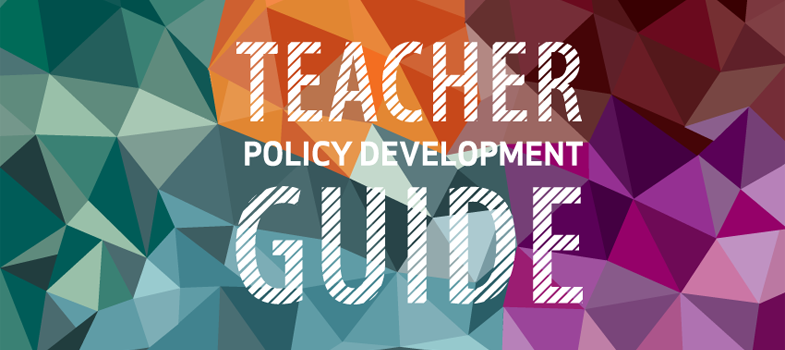1.1 Introduction
1.1.1 At the heart of learning: Teachers and teaching
International standards, expert bodies and reviews consistently place teachers at the centre of universal access to high-quality and equitable education. Government and education experts who framed the ILO/UNESCO Recommendation concerning the Status of Teachers (ILO/UNESCO, 1966, hereafter referred to as the 1966 Recommendation) based their work on the idea that, ‘advance in education depends largely on the qualifications and ability of the teaching staff in general and on the human, pedagogical and technical qualities of the individual teachers’ (ILO/UNESCO, 1966: 4).
Extensive research in diverse countries and education systems concludes that ‘teachers are the single biggest in-school influence on student achievement’ and that ‘teacher effectiveness is the most important school- based predictor of student learning’, often playing its most important role in overcoming the learning deficits of disadvantaged students (Asia Society, 2014: 7; OECD, 2014a: 32; World Bank, 2013: 5).
There are several good reasons therefore why teachers and teaching should be at the top of education and other policy-makers’ concerns:
- The importance of education: education is one of the key human priorities, even in the poorest countries and communities. Education is associated with poverty reduction, improved health and life expectancy, quality of life and respect for human rights. Parents place great emphasis on (and make sacrifices for) the education they can give their children. Education depends first and foremost on human interaction between learners and their teachers; however, teachers are supported by learning aids, technology and other educational resources.
- Learning quality and success: evidence shows that apart from factors that are external to schools and factors that are difficult for policy-makers to influence (for example the individual, family and community background), teachers and teaching are some of the most important influences on student learning. There is broad consensus that teacher quality is the single most important school variable influencing student achievement (OECD, 2005: 23–25; ILO, 2012: 1). Teachers are all the more important in relation to what is termed a ‘learning crisis’ facing millions of in- and out- of-school learners (UNESCO, 2014: 191). To maximize teacher effectiveness and help resolve these issues, an education sector plan should incorporate a good teacher policy (Chapter 2).
- Human resources and budgets: teachers are one of the largest components of a nation’s labour force (2–3% or more of formal employment in many countries); they are both the principal human resource in any education system or learning environment and the largest single financial component of any education authority’s budget, accounting for anywhere from 60% to more than 80% of recurrent (non-capital) public education expenditures (OECD, 2014b: 280–283; UNESCO, 2014: 254; UNESCO, 2010: 81). Recent international policy tools (from UNESCO, the ILO, OECD, the World Bank and others, cited in this guide) reinforce the concept that high-quality teachers and teaching based on teacher professionalization and excellence in human resource policies yield the best learning results and reduce costs to education systems. These factors alone justify a comprehensive teacher policy that seeks to maximize learning outcomes and a nation’s investment in quality teachers.
- Education objectives and reforms: estimates of difficulties in reaching countries’ overall education objectives, as well as reforms periodically launched to deal with major national challenges, regularly point to several factors related to teachers:
- Teacher shortages are a major challenge, whether in specific education subjects, geographic areas or across the board. In 2013, it was estimated that an additional 3.3 million primary teachers and 5.1 million lower secondary teachers would be needed by 2030 to provide all children with basic education. However, chronic shortages of teachers are expected to persist for decades beyond 2015 if current recruitment trends continue (UNESCO Institute for Statistics – UIS, 2013: 1). This means that learners will not have access to an education, or will have a poorer-quality education than they need and deserve.
- Teacher motivation and sense of professional responsibility are crucial factors in the success of individual learning and education systems. Dedicated teachers with empathy for and high expectations of each and every learner have significant impact on learner outcomes. Unmotivated teachers with little professional commitment lead to widespread absenteeism, high turnover and attrition rates of both good and ineffective teachers, and poor teacher performance, all of which undermine the very foundations of quality education.
- Lack of teacher involvement in reforms — reforms are too often designed and put into place by education authorities unilaterally or with minimal stakeholder input. The individuals most directly concerned and most important to reform success are teachers and their representatives. At best, such top-down reforms work only partially, because they have not fully involved the professionals who are responsible for implementing them. At worst, they may be so strongly opposed by teachers and their representatives that they fail outright. The evidence, however, shows the positive role that teachers and teacher unions can play in successful, quality education reforms, if they are properly engaged from the beginning (UNESCO, 2014: 220–222).
List of Abbreviations and Acronyms
